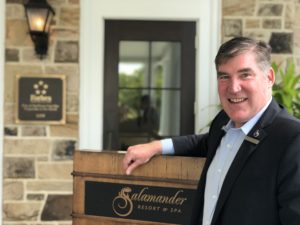Q: How has your career in Hospitality Sales, Marketing and Revenue Management opened your world?
A: So what my career in Hospitality Sales and Marketing has allowed me to do is to really interact with individuals from all walks of life. So, I’ve been blessed in my career. I’ve gone the route of much more of the resource sector, both domestically and internationally. And so I’ve been able to deal with a lot of variables within, specifically, the meetings and the group market, as well as leisure, of people that are coming to a destination for reward, for business reasons and also for strictly leisure. So I’ve been able to interact with a wide swath of industry types and the individuals that obviously make up those industries in a variety of backgrounds where their needs, their experiences, their takeaways from the utilization of that resort or that property. We’re very, very different. So that when you’ve got a varying an expectation that provides you with the opportunity to meet different layers within organizations.
Q: So from the beginning of your career until now, what are some of the titles you held along the way?
A: I started out as a National Sales Manager. My degree was in marketing. And so my path has been throughout Sales and Marketing. I started as a Sales Manager, went to a National Sales Manager, grew to an Associate Director of Sales, grew to Executive Director of Group Sales. And as I was moving through these steps, the type of properties I was representing were growing and getting grander in scale or more stars and diamonds, depending on which one which stopped in my career. And then elevated to a V.P. of Sales and Marketing role and have been in a V.P. title for about the last 15 years of my career.
Q: What first excited you about the hospitality industry and what still excites you about the work you do today?
A: Interestingly, I grew up in the hospitality industry. My father actually started with Marriott when that huge behemoth had three properties. So I grew up in the business. What got me excited was the sales and marketing side, the opportunity to really position what really is not a cog or a manufactured product, but an experience and the ability to use sales techniques and marketing techniques to create a vision of what an experience for a meeting attendee or a leisure guest could be. That’s a very different type of a sales process. And it’s very, very satisfying when you’re able to see the end result. If you look at what we do in Sales and Marketing in the hospitality industry, we’re creating memories for our lifetime. That’s very, very special and something that shouldn’t be taken for granted. And so that, to this day, still juices me every day to be able to create be a part of creating these experiences for people.
Q: What kinds of attributes, talents, skill sets would you recommend someone have if they’re interested in getting into Hospitality Sales and Marketing?
A: I think that one of the main things that sometimes people overlook or take for granted is the likability factor. It’s that people do business with people they like and people they trust. So, I think a lot of times we get so caught up with technology and processes that what we have to kind of come back to at the core is that people do business with people. And so I think one of the things I would really stress that maybe, outside of what you hear a lot is, really, do you like interacting with people? Do you consider yourself a likeable person? Being nice goes a long way in business and in life. I mean, we like doing business with people that are nice. And so those type of skill sets are important. To be successful in sales you have to also be very, very competitive. You want to be the individual that at the end of the month, if your name isn’t at the top of the production sheet for your team, division, however, you’re compared against the other members of the sales team. You know, for me, I’ve always been an individual that if I wasn’t in that top slot, it made my stomach hurt. I mean, that actually bothered me. So, you need to have a competitive edge, but you have to balance that with still being a good team player. And as I said, being nice goes miles and miles in this business and all businesses.
Q: What would you recommend professionals do if they really want to break into the hospitality industry? What are some good first steps?
A: One of the things I would recommend is go work at a property. There’s always some sort of a job that’s available at most hotels, resorts in the area that these individuals lived in. So, whether or not that’s as a Front Desk Agent, whether it is Housekeeping, Engineering, working at the pool, whatever it is, get into that environment and get a feel and start interacting with the individuals that work in different places, in different parts of the property. Because a hotel or a resort is like a little city. Maybe you’re going to find that the accounting department is a really good fit for you, your numbers person. Or maybe you’re going to find culinary; you can go so many different ways with culinary, whether it’s through the banquet team, whether it’s through the restaurant division. So, there’s so many different segments of the business, front office operations, human resources. There’re so many different areas where your own traits and special talents and really what juices you can really fall within that environment. A good way to find out where your fit is is just going in and working or interning within that environment early on. Also, you can find out maybe it’s not for you. I mean, the hotel business is not for everyone. Hotels are like hospitals, they never close. They’re open 24 hours a day, 365 days a year. There’re certain departments within hotels that are kind 9-to-5 jobs, accounting would be a good example of that. But for the most part, if you’re in Operations or in Sales, you’re going to be working some different diverse hours, because that’s just the nature of the experience that you’re providing and what a hotel or resort really is. Internships. I’ve been involved with helping some from hospitality majors in securing internships and that has been a really, really strong opportunity for these individuals, these hospitality students to really understand what they like and just as importantly, what they don’t like.
Q: As a potential hospitality applicant, why should I look into hospitality? Is it really a great industry?
A: I can definitively say, yes, it is a great industry. Wonderful people in the hospitality industry; they’re dynamic, they’re outgoing, they’re service-oriented, they have the ability to grasp that what we’re creating for individuals is unique, that we could be part of people’s memories, part of the experiences that they’re going to take with them for the rest of their lives. That’s a very, very unique situation. You can go a lot of ways with it. As we’ve become so much more global with a lot of our big brands being very global in nature, your ability to see different parts of the world can be opened up to you through this career in hospitality and the sky’s the limit. You can go as far as you really want within this industry and you could go a lot of different directions. You could go hotels, cruise lines, airlines. There’s a lot of different spin-offs, if you will, of where you could take a career in hospitality. If you take a look at someone who’s going into a factory creating a product, and God knows we need people to go into factories and creating a product, but it’s a very kind of kind of a static environment. You go in, you have a function, and the next day you go on and you have a function. At the end of day, you’re creating a product that gets distributed. The hotel industry is extremely dynamic. Every day is different. And that’s what things that I love about my job and always have is that when I walk in the door, I may set out a plan for while I plan my day to go, but that plan can go through many, many iterations through the course of the day based on many external and internal factors. So, it’s the ability to be nimble and to be able to kind of roll with it a little bit and to be able to change speeds and change directions quickly and multitask. All of those things make my business day go by very, very fast. There’re so many dynamic things going on, you’ll be just be surprised by how quickly the days go by.
Q: What are some of the trends that you’re seeing in Hospitality Sales and Marketing and what are you really keeping a close eye on these days?
A: Well, the big game-changer has been technology, certainly, without a doubt. Technology has completely changed the hospitality industry, how people travel, how people search travel, the whole Internet of Things, if you will. Travel being one of the main avenues and the main businesses that has really been able to take distribution and put out to a broad swath of individuals through efficient means like the OTAs have done, like Expedia, Travelocity, etc. How that is a complete game-changer for how people buy, how people make their decisions. That along with social media. I mean, now TripAdvisor has more weight where an individual is going to choose to plan their vacation or their travel. You’re looking at individual reviews. That all really started really strongly in the travel space and it has now morphed into the other industries. And now, obviously, when we are shopping on Amazon, we’re looking at the reviews of the product and what other people have to say. So as technology has changed the business it’s also opened up a tremendous amount of opportunities for people that didn’t have a big voice before. Things like social media and that’s the whole marketing going more towards a review-based and presenting the voice of the customer versus presenting the voice of the property. So industry, with its morphing, has opened up a variety of avenues that didn’t exist 10 or 15 years ago. So, as I see that where the hospitality industry is going, it’s actually technology. Some people say technology is making salespeople and marketing people less relevant and maybe even obsolete in certain ways. I look at it the exact opposite was: I see it creates more of a need for the right type of salespeople and targeted marketers to take advantage of the new technology and the new environment that we have in the hospitality industry. So, it’s created a whole wealth of jobs that didn’t exist or opportunities that didn’t exist 10 or 15
years ago, specifically to the Sales side of things. There’s a lot of technology that has come in in the sourcing and the processing of requests for proposals, bids, putting things through online channels. But at the end of the day, because of that, that technology being at times a separator between the end-user and the sales organization, the people that are really good and are able to utilize technology as a springboard to make that face-to-face contact and to make that personalization of the sale are the ones that are really to be rewarded quite handsomely because it’s become more challenging. It’s not as easy as it used to be. So, I think technology creates for us sometimes advantages and hurdles, but it also creates for us tremendous opportunities.
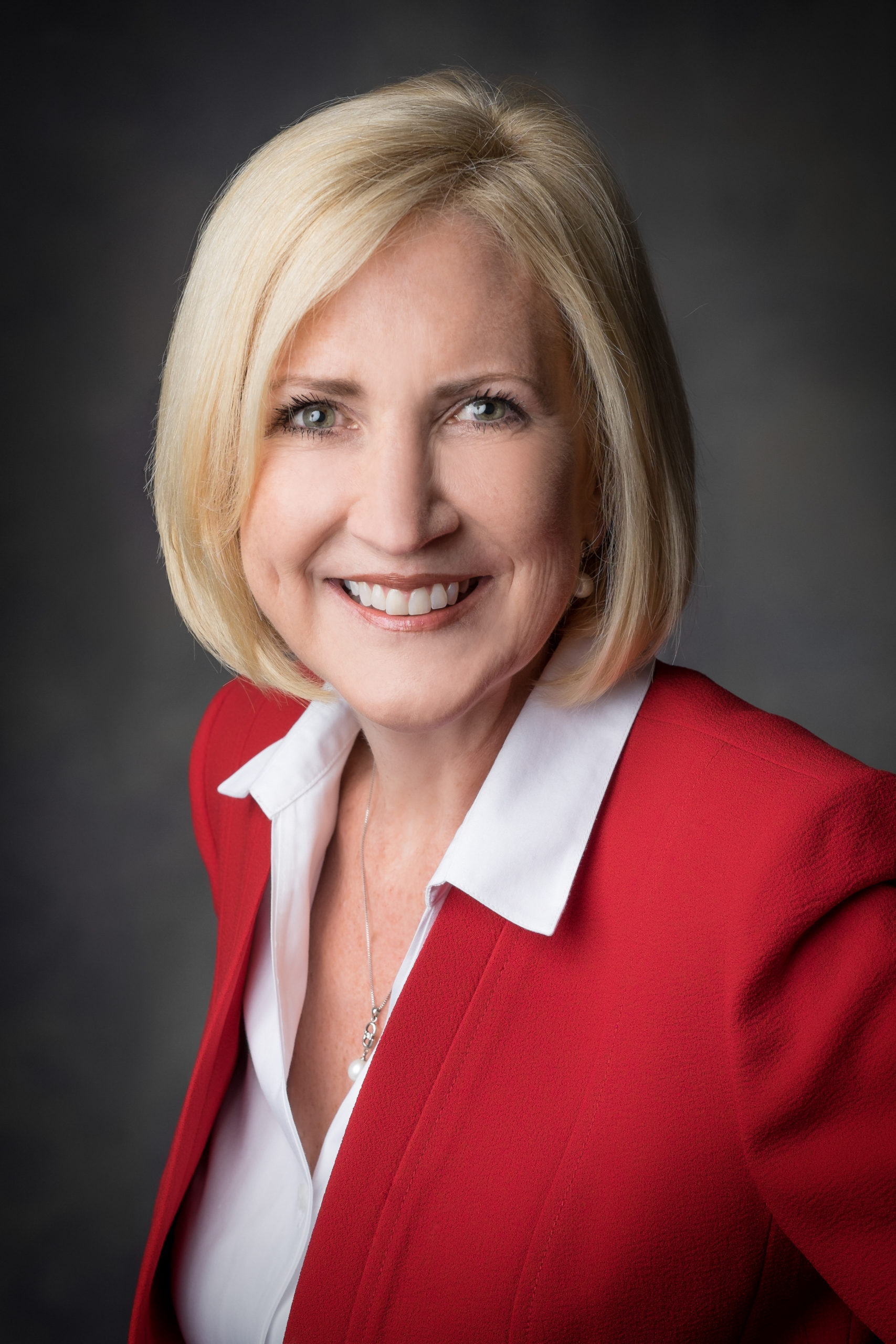 Hear from a revenue management pioneer about the evolving and exciting hospitality industry.
Hear from a revenue management pioneer about the evolving and exciting hospitality industry. 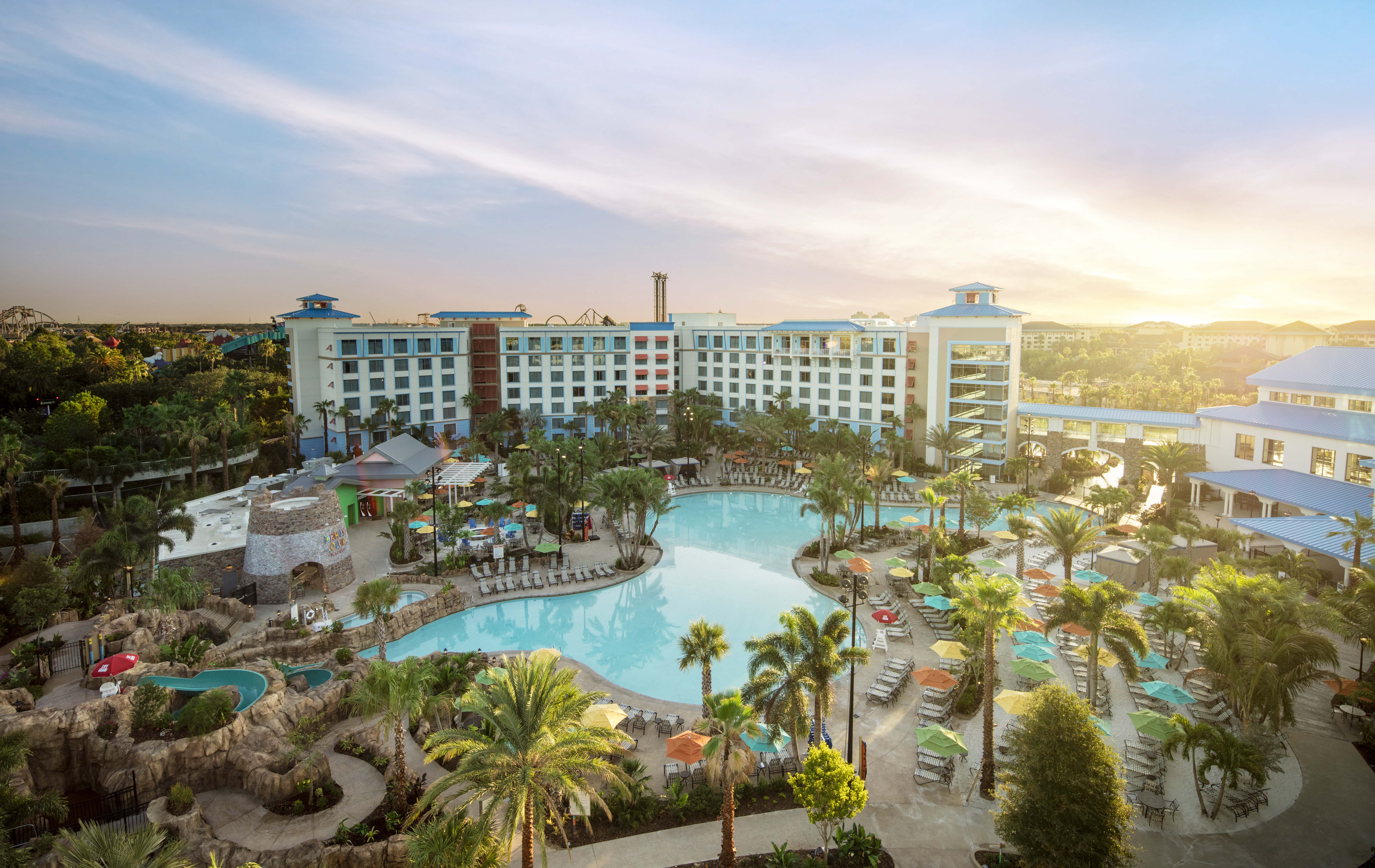
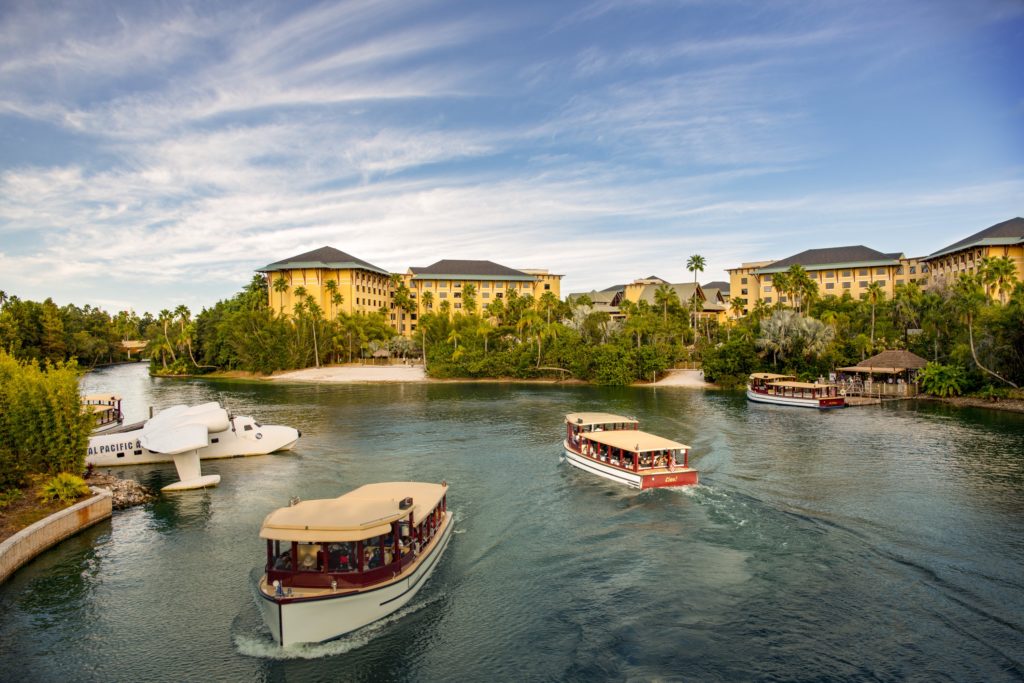
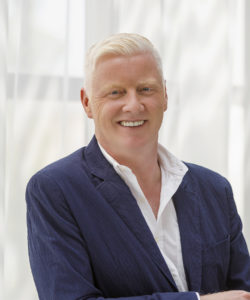 How did you get started in Hospitality Sales, Marketing and Revenue Management?
How did you get started in Hospitality Sales, Marketing and Revenue Management? 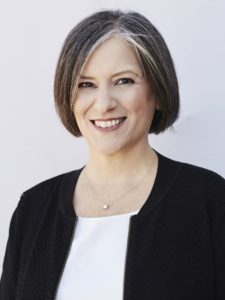 How did you get started in your nearly 30-year career in Hospitality Sales, Marketing and Revenue Management?
How did you get started in your nearly 30-year career in Hospitality Sales, Marketing and Revenue Management?